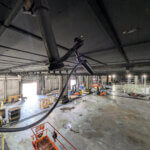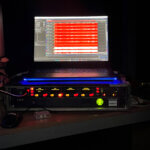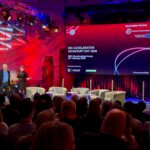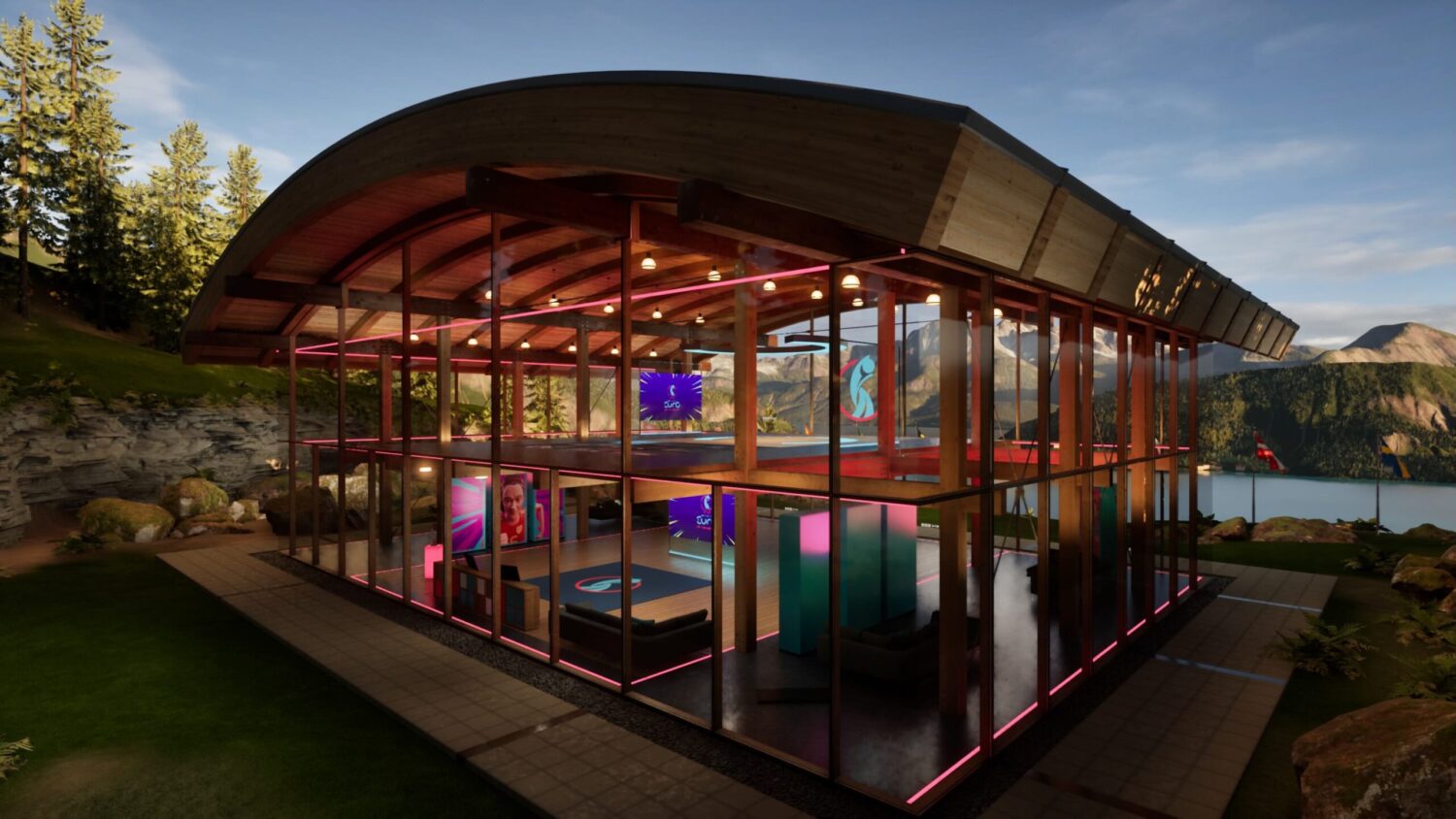A dedicated virtual environment for sports storytelling, BBC reports a viewing peak of 12.2m for the Women’s Euro final
For this summer’s Women’s Euros 2025, BBC Sport, in partnership with Vizrt and creative studio Lightwell, delivered a broadcast that reflected the momentum and maturity of women’s sport – raising the production standard to match its rising audience.
The BBC reported 12.2 million peak audience for the Lionesses win over Spain, making it the most watched television moment of 2025 across all broadcasts. For the entire tournament, the BBC reported a total TV reach figure of 22.1m, with total viewing hours having increased from 173m in 2022 to 186m this year.
Now, one in four global sports fans regularly watch women’s sports, according to the Women’s Sport Trust. BBC Sport answered that rising demand by debuting a virtual studio environment for the Women’s Euros that combined editorial storytelling with a flexible, visually rich XR backdrop – built using Vizrt’s live graphics and real-time rendering tools in partnership with Lightwell.
The BBC has played an important role in the growth of women’s sports, culminating in the unique coverage of this summer’s events. BBC Creative planned a campaign that includes Claymation trails and titles of UEFA Women’s Euro 2025 in a way that is distinctive, imaginative, and rooted in the BBC’s values.
“Our ‘Names Will Be Made’ campaign is a bold statement of intent – we’re spotlighting female athletes as cultural icons in the making. By celebrating the players with scale and confidence, we’re aiming to inspire the next generation of fans, and make a lasting impact with audiences,” says Liv Slack, Head of Marketing, BBC Sport.
Bringing Switzerland into the Studio
Designed to reflect the Swiss setting of the tournament, the virtual set placed presenters in a mountaintop pavilion overlooking Lake Lucerne. Behind them were sweeping alpine views, fluttering national flags, and soft skies shifting to reflect the time of day. The XR studio became more than a backdrop, it helped ground the coverage in the look and feel of Switzerland, while giving producers the flexibility of a fully virtual environment.
“This wasn’t about adding technology for the sake of it,” says John Murphy, Design Director at BBC Sport, “It was about using the tools we already have available to us to tell the story of the tournament in a way that was current, and reflective of where the tournament was being played. Fans are tuning in more than ever, and we aim to deliver the best possible coverage.”
Blending real-time technology with live sport
The project was powered by Vizrt’s Viz Engine in combination with Unreal Engine, enabling BBC Sport to blend live graphics with high-end virtual design – all in real-time. This setup helped the production team deliver a seamless, broadcast-ready environment that matched the pace and polish of live sport, while giving creative teams were able to adjust visuals and narratives as the tournament unfolded.
Presenters were placed naturally within the set using Vizrt’s Reality Connect tool which is AI-driven talent immersion that generates accurate reflections, shadows, and lighting to make the virtual environment feel realistic on screen. Having presenters realistically placed in virtual space brings viewers closer to the imagined world, making the high visual fidelity truly immerse the audience.
Editorially driven design
Creative direction was led by Lightwell, who along with longtime collaborator Toby Kalitowski, worked closely with BBC Sport to design a set that aligned with the tone and identity of the tournament. Every element, from the flags of participating nations to the positioning of the camera moves, was designed to support the storytelling and reflect the distinctiveness of a major international event.
“We wanted the virtual space to feel editorially integrated,” adds Jim Mann, Creative Director at Lightwell. “Not just somewhere for presenters to stand, but a space that helped tell the story of the location and the tournament. It was about giving BBC Sport a canvas that matched their ambition, and the audience’s expectations.”
Extending the value of virtual production
BBC Sport built on the same XR infrastructure used during its 2024 Olympics coverage, adapting the virtual studio for the Women’s Euros with a new creative treatment. By reusing and evolving core technology across major events, the team is delivering consistently high production values while maximizing the impact of its technology.
“The smartest use of technology isn’t always about what’s new – it’s about what’s next,” says Andrew O’Neil, VP Sports, Strategy & Growth at Vizrt. “When broadcasters can adapt a single platform across multiple flagship events and still raise the creative bar each time, that’s where the real value is. It’s not just efficient – it empowers teams to focus on storytelling, not setup.”






